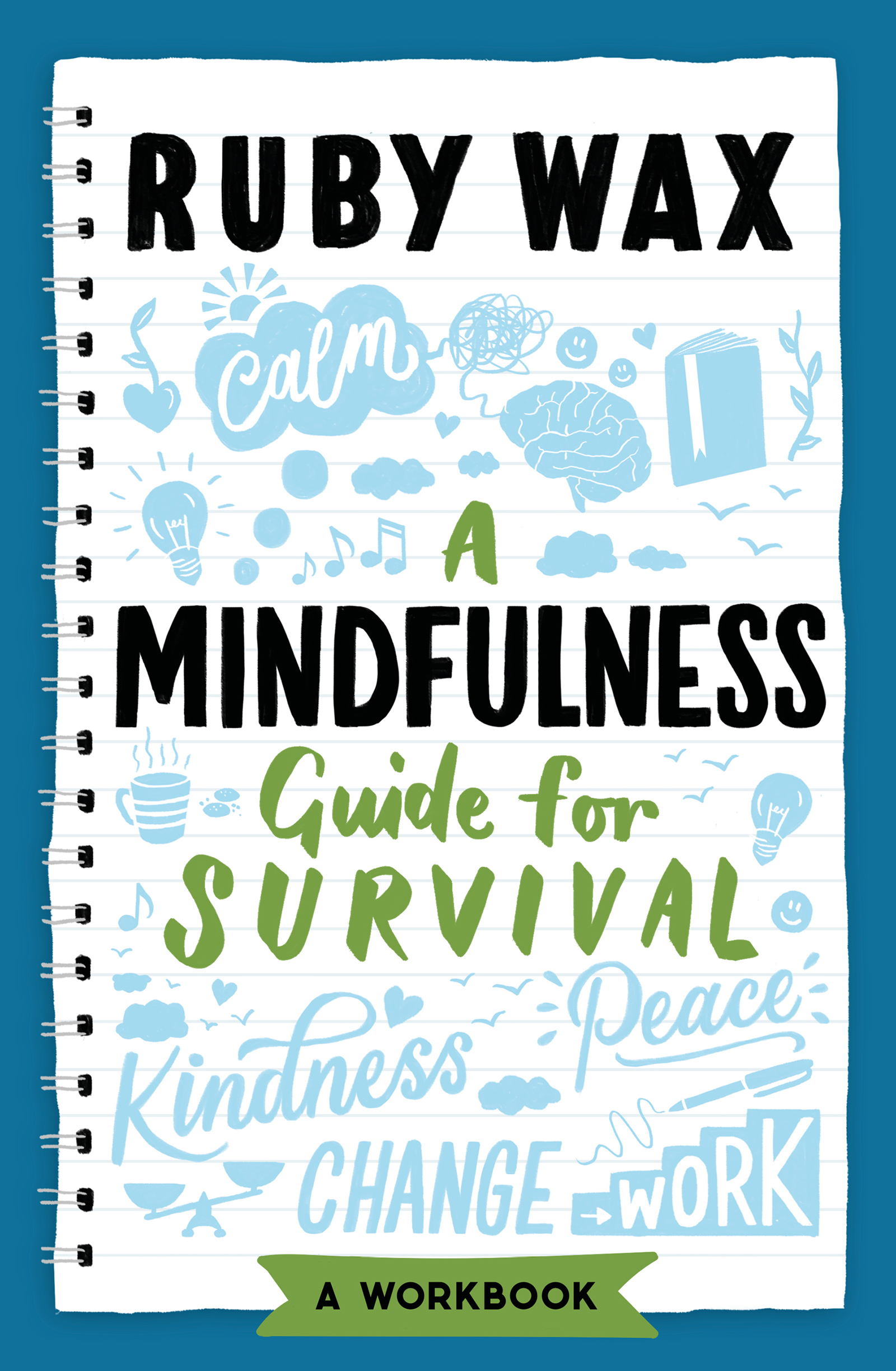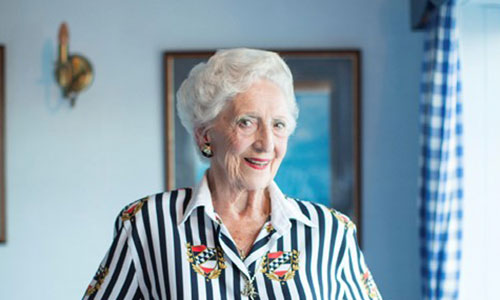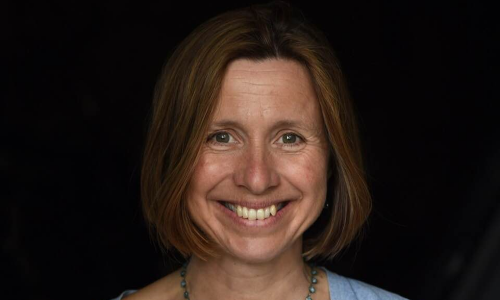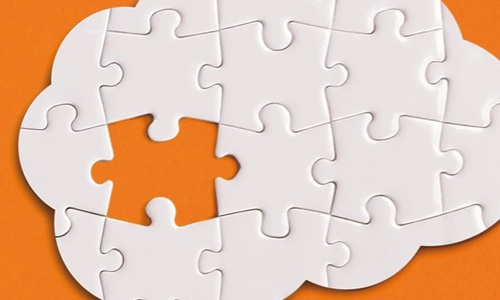
A workbook for worrying times
Ruby Wax's new book, A Mindfulness Guide for Survival, is not supposed to be a self-help book but an evolve-yourself one. Age UK talked to her about mindfulness and its benefits, particularly during trying times.

Ruby Wax's new book, A Mindfulness Guide for Survival, is not supposed to be a self-help book but an evolve-yourself one. Age UK talked to her about mindfulness and its benefits, particularly during trying times.
We’ve all read about ‘mindfulness’, but have we taken the time to find out what it means and how it could benefit us when life becomes difficult? Ruby Wax — actress, comedian, writer and champion of mental health — has written a new book full of practical advice and step-by-step exercises intended as a roadmap to a healthier, happier mind.
“At any age, if you're not well adjusted then events are going to happen that knock you for six,” Ruby tells Age UK. “The intention for the book, A Mindfulness Guide for Survival isn't to pretend that everything is fine, but to get the lifeboat ready for those events. The point of the book is to isn't to say: 'Oh no, it's all over', but to say it might happen tomorrow, so let's have an open mind today.”
 Early in lockdown, Ruby recalls vacuuming the same spot of her carpet for what felt like 24 hours, though she suggests dealing with the situation better than she would have done in her younger days. “It would have frozen me,” 67-year-old Ruby suggests of how the 25-year-old version would have coped with the restrictions. There are many reasons why she was better prepared these days, not least having constructive focuses for her attention. Pre-COVID, Ruby had felt she didn’t have a sense of community, so started one of her own called the Frazzled Cafe, where 12-15 people would meet fortnightly in different cafes and chat about what was happening in their lives in a safe, non-judgemental space.
Early in lockdown, Ruby recalls vacuuming the same spot of her carpet for what felt like 24 hours, though she suggests dealing with the situation better than she would have done in her younger days. “It would have frozen me,” 67-year-old Ruby suggests of how the 25-year-old version would have coped with the restrictions. There are many reasons why she was better prepared these days, not least having constructive focuses for her attention. Pre-COVID, Ruby had felt she didn’t have a sense of community, so started one of her own called the Frazzled Cafe, where 12-15 people would meet fortnightly in different cafes and chat about what was happening in their lives in a safe, non-judgemental space.
This idea would, of course, prove even more vital once COVID arrived. Conscious of safety, however, the sessions soon moved to Zoom. It was during this period that Ruby began to notice how people were reacting to the pandemic. “Seeing people genuinely surprised that life is uncertain and things change motivated me to write the book,” says Ruby of A Mindfulness Guide for Survival. “If I knew another way, I’d have written about it another way,” says Ruby. “But I was trained in mindfulness.”
Ruby, who was diagnosed with clinical depression almost a decade ago, spent just as long trying psychiatry, therapy and medication that worked for her and stayed working. She eventually tried mindfulness, which she found a useful way to “de-frazzle” her mind, but wanted to understand the science behind why it works and the mental issues that affect the brain.
But what is mindfulness? Mindfulness is defined as ‘a basic ability to be fully present, aware of where we are and what we’re doing, and not overly reactive or overwhelmed by what’s going on around us’. And while it’s a good way to take a moment of calm to declutter our busy thoughts, Ruby suggests this can make the concept of mindfulness sound passive and that, like any exercise, there are benefits that will come with doing it consistently.
“There’s evidence that there’s neurogenesis when you exercise your brain,” explains Ruby of the process by which new neurons are formed in the brain. “It’s the equivalent of doing sit ups in the gym. If you lie down and then get up from a prone position over and over again, you’re going to get more muscular in that area eventually. It’s the same thing with these exercises - you will get this neural mass in the areas of the brain responsible for focus and memory, but as with going to the gym, if you stop doing it, you’re going to get out of shape again.”
“And it’s not overnight,” Ruby clarifies, managing expectations of how quickly people will feel the benefits of mindfulness.
Despite describing herself as “a failure at school”, Ruby graduated from Kellogg College, Oxford in 2013, with a Masters in Mindfulness-based Cognitive Therapy. She soon put what she’d learned into practice with bestselling books including Sane New World: Taming the Mind (2013) and A Mindfulness Guide for the Frazzled (2016). She was awarded an MBE for her services to mental health in 2015.
In the introduction to A Mindfulness Guide for Survival, Ruby suggests that one of the reasons that so many struggled with the outbreak of COVID-19 is that we were forced to confront what she describes as “The Big Six”, which are: difficult emotions, uncertainty, loneliness, change, dissatisfaction and death.
These six harsh realities, Ruby says, should be taught when we’re at school, but in the absence of such tough lessons for children, mindfulness can be a great way to better prepare us for them. “If you make a little bit of an effort with this brain gym idea, you can change your neural patterning and that can hold back a sense of rigidity. You become more curious and your fear levels drop.”
A Mindfulness Guide for Survival is out now via Welbeck.
Being worried, low or out of sorts aren't just part and parcel of getting older. Age UK's dedicated mental health section includes information about depression and anxiety, the importance of talking therapies, advice on coping with bereavement, and much more.

A fascinating new book compiles interviews with 28 older people to help change perceptions of ageing.

Geriatrician Dr Lucy Pollock speaks about her new book, demystifying ageing, and enjoying a healthy, happy later life.

Wendy Mitchell discusses her new book, in which she dispels misconceptions about life with dementia.

Age UK speaks to poet Magi Gibson about re-releasing a collection that tackles age (and other topics) 21 years later.